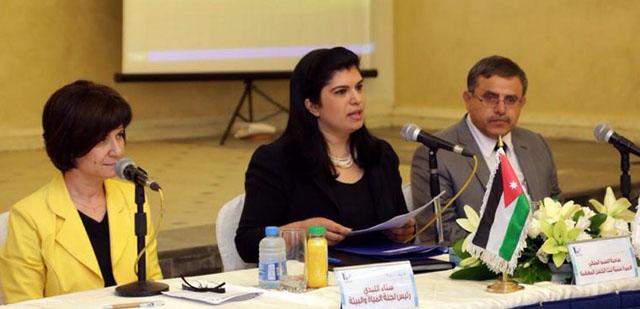You are here
Kingdom sees spike in electronic waste disposal
By Balqis Zeidan - Jan 28,2020 - Last updated at Jan 28,2020
AMMAN — Household electrical and electronic waste (HEEW) reached over 8.7 million items during 2018, according to the Department of Statistics (DoS).
The figures, released in January, showed that Amman recorded the largest amount of HEEW waste in the Kingdom, contributing 46.1 per cent to the total amount, while Tafileh contributed the least, with 0.6 per cent.
Operations Manager at BE Environmental Services Mohammad Abboud told The Jordan Times on Monday that the high amount of waste in Amman can be attributed to its residents’ more urban lifestyle compared to those living in other governorates.
On average, each city-dweller dumps over one kilogramme of general waste daily, whereas villagers dispose of around 0.5 kilogrammes each per day, Abboud said, highlighting that standards of living play a major role in determining the amount of waste dumped.
The DoS followed the UN’s classification to categorise different types of HEEW into six groups. Waste from lamps was the largest quantity recorded, with over 7 million items discarded in 2018, according to the report.
Abboud attributed this high number to a trend over the past few years that has seen people changing the light bulbs in their houses to more energy-efficient ones, even if the original bulbs were not burned out.
Electronic litter is dangerous, as it contains chemicals such as zinc, uranium and mercury, which can negatively affect the environment, the operations manager said.
To reduce the quantity of HEEW, he suggested that the concerned authorities provide e-waste bins for the public, establish educational programmes at schools and launch public awareness campaigns through different media platforms to better inform the public on how to deal with HEEW.
Figures showed that, of all the Kingdom’s HEEW reported in 2018, around 7.4 million items were discarded with general waste, around 150,000 were given to another party, 182,000 were delivered to recycling specialists and around 823,000 were sold, according to the DoS.
Most recycling plants are located outside Jordan, Abboud said, adding that reprocessing electrical and electronic waste requires large machinery that is difficult to find in the Kingdom.
Related Articles
HRH Princess Sumaya on Monday called for creating a strict system to monitor the production and transboundary transport of hazardous waste in the Kingdom to protect public health and the environment.
The Ministry of Environment has completed distributing the second batch of bins and containers across the country to collect electronic waste, a government official said Monday.
The Ministry of Environment will launch a campaign within a week to raise public awareness on ways of handling electronic waste, according to officials.












